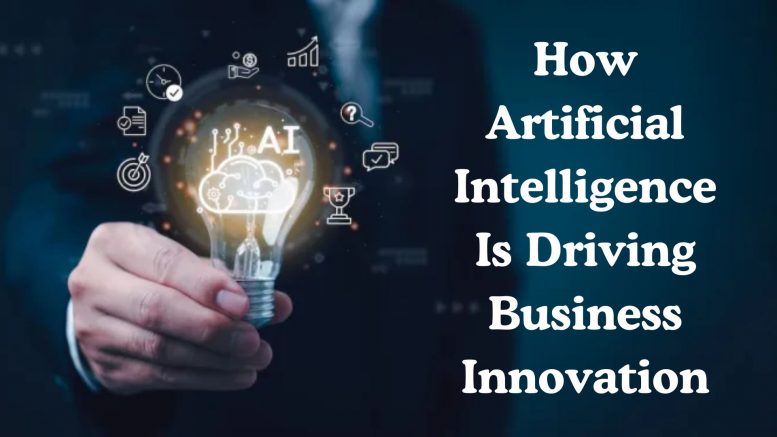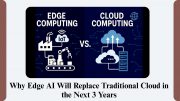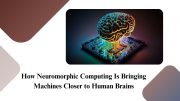Artificial Intelligence (AI) has emerged as the most transformative force in modern business. From automating routine tasks to unlocking valuable insights from massive datasets, AI is reshaping industries, redefining strategies, and empowering organizations to operate smarter and faster than ever before.
What began as a futuristic concept is now at the heart of business innovation influencing how companies analyze data, engage customers, optimize operations, and make strategic decisions. Whether its startups harnessing AI for scalability or global enterprises integrating it into daily operations, AI is driving a new era of digital growth and competitiveness.
In this comprehensive article, we’ll explore nine key ways AI is driving business innovation, transforming processes, products, and performance across industries.
1.Enhancing Decision-Making with Predictive Analytics
Data has become the lifeblood of modern business, but raw data alone means little without intelligent interpretation.
This is where AI-powered predictive analytics plays a crucial role.
AI systems can analyze vast amounts of structured and unstructured data to forecast trends, predict outcomes, and support better business decisions. For instance:
- Retailers use AI to predict consumer buying patterns.
- Financial institutions leverage AI models to forecast market movements.
- Manufacturing companies rely on predictive maintenance to reduce downtime.
Predictive analytics not only saves costs but also drives innovation by enabling organizations to anticipate customer needs and respond proactively. Businesses are no longer reacting to change they’re forecasting and shaping it.
2.Revolutionizing Customer Experience through Personalization
Today’s customers expect personalized interactions at every touchpoint. AI enables businesses to deliver those experiences at scale.
Using machine learning and natural language processing (NLP), AI analyzes customer behavior, purchase history, and preferences to deliver tailored content, recommendations, and services.
For example:
- Amazon’s recommendation engine drives nearly 35% of its total revenue.
- Netflix uses AI to curate content suggestions based on viewing patterns.
- Chatbots and virtual assistants like ChatGPT or Google’s Bard enhance real-time support with human-like interactions.
AI-driven personalization helps businesses build stronger customer relationships, increase engagement, and boost conversions. The result? A customer experience that feels more intuitive, intelligent, and rewarding.
3.Automating Business Operations for Greater Efficiency
Automation has become one of the most visible ways AI drives innovations. Through robotic process automation (RPA) and intelligent workflows, businesses can automate repetitive, time-consuming tasks.
This allows employees to focus on high-value activities like strategy, creativity, and customer engagement.
Examples include:
- Finance departments automating invoice processing and expense tracking.
- HR teams using AI for recruitment, screening, and onboarding.
- Manufacturing companies deploying AI-powered robots for precision tasks.
Automation not only saves time but also reduces human error, lowers operational costs, and accelerates output. In short, it enables companies to achieve more with less a hallmark of modern business innovation.
4.Driving Product and Service Innovation
Artificial intelligence is not just transforming how businesses operate it’s revolutionizing what they create.
AI enables smarter product development, faster innovation cycles, and data-driven design.
For instance:
- Healthcare companies use AI to develop new drugs and diagnostic tools.
- Automobile manufacturers are integrating AI for autonomous driving features.
- Consumer tech brands leverage AI for voice recognition, smart assistants, and wearable tech innovations.
By using AI to simulate outcomes, test product designs, and forecast market demand, businesses can bring innovative products and services to market faster while minimizing risks.
In the digital economy, innovation speed equals survival and AI give companies that edge.
5.Strengthening Cybersecurity and Risk Management
With businesses relying heavily on digital systems, cybersecurity threats have grown more sophisticated. Traditional defense methods are no longer enough this is where AI takes center stage.
AI-powered systems continuously monitor networks, detect anomalies, and respond to potential breaches in real time. Machine learning models learn from past attacks, enabling proactive defense mechanisms.
For example:
- Financial institutions use AI to detect fraud by identifying unusual transaction patterns.
- E-commerce companies rely on AI algorithms to prevent account takeovers and phishing attacks.
- Corporate IT teams use AI-driven analytics to strengthen endpoint protection.
By integrating AI into their cybersecurity strategies, organizations not only prevent losses but also build trust and credibility essential for sustained innovation and business growth.
6.Optimizing Supply Chain and Operations
AI has become a powerful ally in supply chain optimization. From inventory management to logistics planning, AI enhances operational visibility, efficiency, and responsiveness.
Through predictive algorithms, businesses can forecast demand more accurately, reducing both shortages and surpluses. AI also improves route optimization, helping logistics companies save time, fuel, and costs.
Notable examples include:
- UPS and FedEx using AI to optimize delivery routes.
- Amazon leveraging AI in warehouses for inventory automation.
- Retailers deploying AI tools to analyze supplier performance and market demand.
These AI applications enable smoother operations, lower costs, and faster delivery key factors in competitive business landscapes.
7.Transforming Marketing and Sales Strategies
AI is redefining how businesses connect with their audiences.
Through AI-powered analytics, social listening tools, and automated marketing platforms, companies can understand customers at a granular level.
Some powerful applications include:
- Targeted advertising: AI identifies audience segments with precision.
- Content creation: Tools like Jasper and ChatGPT help create optimized content for blogs, ads, and social media.
- Predictive lead scoring: AI helps sales teams identify high-value prospects.
According to Salesforce, 84% of marketing leaders use AI to enhance personalization and campaign performance.
AI doesn’t just automate marketing; it makes it smarter, more data-driven, and result-oriented, leading to stronger brand visibility and ROI.
8.Empowering Human Resources and Talent Management
AI is reshaping how businesses manage and engage their workforce.
Through AI-powered recruitment platforms, HR departments can identify top candidates faster, reduce bias, and improve hiring accuracy.
Examples include:
- LinkedIn Talent Insights for skill-based recruitment.
- AI chatbots for employee onboarding and support.
- Sentiment analysis tools to gauge employee satisfaction and engagement.
In addition, AI-driven workforce analytics provide insights into employee performance, retention, and productivity trends, enabling HR teams to make informed, people-centric decisions.
By integrating AI in human resource management, businesses cultivate smarter, happier, and more efficient workplaces, which directly fuels innovation.
9.Unlocking New Business Models and Opportunities
Perhaps the most exciting aspect of AI is its ability to create entirely new business models.
By blending data, automation, and digital connectivity, AI allows businesses to scale in ways previously unimaginable.
Examples include:
- Subscription-based AI services (AIaaS) offering affordable machine learning tools to startups.
- Personalized e-commerce platforms that dynamically adapt pricing and recommendations.
- AI-driven logistics companies providing real-time supply chain visibility.
Moreover, AI empowers businesses to enter new markets and industries from virtual assistants and autonomous transport to financial forecasting and smart manufacturing.
By integrating AI at the strategic level, companies can continually innovate and evolve ensuring long-term competitiveness and sustainable growth.
Conclusion: The Future of Business Innovation Is AI-Powered
Artificial Intelligence is no longer a futuristic concept it’s the foundation of the next industrial revolution. Across every sector, AI is enabling faster decision-making, deeper insights, smarter automation, and limitless innovation.
Businesses that embrace AI today are not just improving efficiency; they’re reinventing how they operate, compete, and deliver value. From startups to global enterprises, the message is clear AI is the engine of business innovation in the 21st century.
As AI continues to evolve, it will unlock even greater possibilities bridging creativity and technology, redefining industries, and creating a smarter, more connected business world.
Stay connected with 1WebsDirectory your trusted directory for global business and tech insights.




Be the first to comment on "How Artificial Intelligence Is Driving Business Innovation"